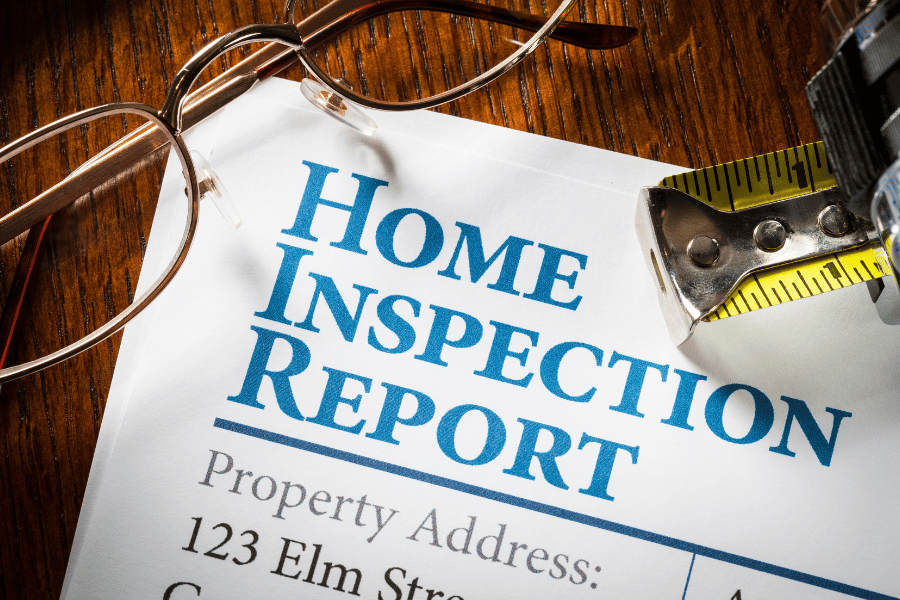Active Option Contract: What Does It Mean?
What is an active option contract? Follow along as we discuss what that means for you in the real estate process, what it means for both buyers and sellers, and more.
Real estate terms and definitions can confuse those not in the field. When searching on listing sites, you are faced with various technical terms, legalities, and more. You find yourself wondering what the difference is between an active and a contingent listing or pending vs. under contract. One specific term that can show up on listing sites is the Active Option Contract. So, what does it mean?
Let's discuss what an active option contract means for you, how to get to this step in the real estate process, and how to proceed from there.

What Is An Active Option Contract
When a home is listed for sale, it is listed on active status, and any and everyone can submit an offer to purchase the home. It isn't until the seller accepts a specific offer that the status of the home is changed to an active option contract, and the transaction is in an option period. This time is essential for the buyer to perform their due diligence, typically an inspection, while they have the right to terminate the contract without risking their earnest money. The length of time the buyer has to perform their due diligence is outlined in the purchase contract as well as the option fee and the conditions under which they can terminate.
Earnest Money and Option Fee
Let's dive deep into what happens after you have entered into an active option contract.
Once the seller has accepted your offer to purchase, you, the buyer, will give the seller an earnest money deposit to hold your spot. Earnest money is defined as a deposit made to a seller that represents a buyer's good faith to buy a home. You are giving the seller earnest money to essentially put the house on hold while you perform your due diligence. You may only receive this money back if you terminate the contract for a reason outlined in the contract. However, if you terminate the contract for a reason not listed, the seller keeps the money. Additionally, if neither party backs out of the contract and the sale goes through, your earnest money goes toward the home's sale price.
After your earnest money deposit is in the hands of the seller, you will want to schedule a home inspection. The buyer is responsible for paying for the inspection and the option fee if applicable. The option fee gives the buyer time to have a thorough inspection done before going through with the transaction. Unlike earnest money, the option fee is non-refundable until the end of the contract and then typically goes toward the sale. The seller will receive the funds if the sale does not go through. Option fees usually range from $100 to $300 and are not required in all states.
You can determine an appropriate option fee amount by:
- Divide the seller's current mortgage payment by 30 days and then multiply the per diem by the number of days you need for the option.
- If the home is owned free and clear, the purchase price would be multiplied by 8%, divided by 365 days, to achieve your per diem amount.
Getting An Inspection
After all the appropriate fees are paid, the buyer will schedule an inspection of the home. An inspection is an objective visual examination of a house's physical structure and systems, from the roof to the foundation. An inspector will assess the property's condition, including its heating and cooling systems, plumbing, electrical work, water, sewage, safety issues, evidence of insect, water, fire damage, or any other problems that may affect the property's value. Buyers typically only have seven to ten days, so getting the inspection done during your allotted time is essential. After the buyer receives a complete detailed report, it's time to make a decision. Based on the inspection, do you want to go through with the sale or back out?
You may want to back out if significant problems arise, like issues with the home structure, HVAC unit, or plumbing. These problems can be costly, so if the seller isn't willing to remedy the situation, it may be a deal breaker. During this time, if you back out, you will receive your earnest money back.

Should You Enter Into An Active Option Contract
If you often worry, opting into an active option contract may be the best idea for you. Performing an inspection before the sale can give you peace of mind as you know what you're walking into. If you decide not to enter the option period, you may be met with unforeseen and expensive damages after the sale is complete.
What An Active Option Contract Means For Sellers
Selling your home and beginning new adventures can be very exciting, but it's a long process. After you accept an offer, the process for you is not over. Sales can and do fall through for various reasons or no reason at all. If the buyer still agrees to go through with the sale after the inspection is complete, they may ask for an ower sales price or negotiate repairs. Some pros of an active option contract as a seller are:
You can still accept offers.
A home in an active option contract has not officially sold. You can still make offers on the house, but it is a guessing and waiting game. If the buyer decides to back out during their option period, you then have a shot at the seller accepting the offer. Your contract is discarded if the buyer chooses to go through with the sale.
Faster sale
Since buyers are required to complete the inspection within the allotted time that was agreed upon, they often work faster, which ends in a faster sale.
Active Option Contract vs. Active Contingent Contract
While both statuses mean the seller has accepted an offer, the period after is different. In an active contingent contract, the seller has accepted the offer, but there are 'contingencies' that must be resolved before the sale can go through. A contingency is defined as a clause that buyers include when making an offer on a home that allows them to back out of buying the house if the terms of the clause aren't met. Contingencies can include an appraisal, mortgage, title and home inspection, the sale of a current home, etc. For example, you may see "the buyer's obligation to purchase the real property is contingent upon the property passing inspection."
The top 9 contingencies to consider when making an offer are:
- Home inspection
- Financing
- Appraisal
- Home sale
- Clear title
- Kick-out
- Home Insurance
- Homeowner's Association
- Move-in early

To sum it up, an active option contract means a seller has accepted an offer, but the buyer hasn't 100% committed to the sale. A contingent contract means the seller has accepted the offer, but some aspects must be resolved before closing. You can still place an offer on a contingent home. However, chase mortgage company states that less than five percent of contingent offers fall through.
Some buyers also see listings and will often confuse contingent and pending. If the status of the home is pending, it means that all contingencies have been met, and they are wrapping up the transaction. Agents typically stop accepting offers at the pending stage, but it does not mean the sale is 100% closed. Agents can still negotiate backup offers if there are last-minute roadblocks, including the buyer getting cold feet and backing out.
Why Do Active Options Contracts Fall Through?
There are various reasons why a contract can fall through; however, according to Trulia, only a little over 3% do. Some of the reasons contracts fall through are:
- Inspection: If significant issues arise during the inspection, the buyer may back out of the contract if the repairs are too costly, they don't want to deal with them, or the sellers won't repair them before closing.
- Financial Status: Many offers are contingent upon the buyer obtaining a mortgage or the appropriate funds. If the buyer is unable to, the contract falls through and is placed back on the market.
- Appraisal: Buyers will often want an appraisal and an inspection during a due diligence or option period. If the appraisal states that the sale price is higher than the homes worth, the buyer may back out.
- The buyer can't sell their house: Offers can also be contingent upon the sale of the buyer's current home. This occurs when the buyer finds their dream home but must sell their existing home before they can close. If the home cannot or doesn't sell within a specific time, the seller may back out of the contract.
Listing Statuses

A few other listing statuses that you should be familiar with when browsing sites are:
Active
The home is officially for sale and listed on the multiple listing service. At this point, no offers have been accepted.
Active under contract
An offer has been accepted, but the sellers still receive backup offers.
Closed
The agreement between the buyer and seller for the purchase of a home has been met, and the property is transferred and belongs to the new owner.
Expired
A listing will be considered expired if it does not sell in time. When listing your home for sale, you and your agent decide on the length of time the listing will be on the market.
Temporarily off-market
The home is still don't the market, but there is a pause in showings and offers.
Pending
The seller has accepted an offer, and no contingencies are to be met. The home is no longer active.
Canceled
The contract is no longer active, or the listing is no longer qualified to be on the MLS. Sellers can cancel their listing if they change their mind, it's taking too long to sell, etc.
FAQ
Can a seller accept other offers during the option period?
No. The seller may not accept offers from any other potential buyers while they are holding earnest money.
What is the difference between an active option and pending?
AOC means the seller has accepted the offer, but the buyer is currently in their option period. Pending contracts mean the offer has been accepted, there is no option period to be had, and no contingencies to be met.
What does AOC mean?
A seller has accepted an offer to sell a home, but the transaction is in the inspection or "option" period. During this negotiated time, the buyer usually inspects and evaluates the property with the option of terminating the contract.
Can the seller back out of an option contract?
No. If the contract has been signed, the seller must uphold their end of it.
Active Option Contracts - Final Thoughts
The various terms and legalities in real estate are difficult to understand, especially for first-time homebuyers who haven't gone through the process before. AOCs are often misunderstood, so we hope you are a little more confident using and identifying the term by the end of this. Active option contracts can be highly beneficial to buyers. Using this time to get an inspection saves you from numerous unforeseen damages after closing. If you waive your right to your option period, any damages that arrive after closing become your responsibility. You have the chance to avoid that, so we recommend taking it!
If you are browsing our listing site and looking for your dream home, consider contacting one of our agents to help you in the process! Here at Raleigh Realty, we take pride in treating our clients with the utmost respect and do everything we can to find exactly what you're looking for.
